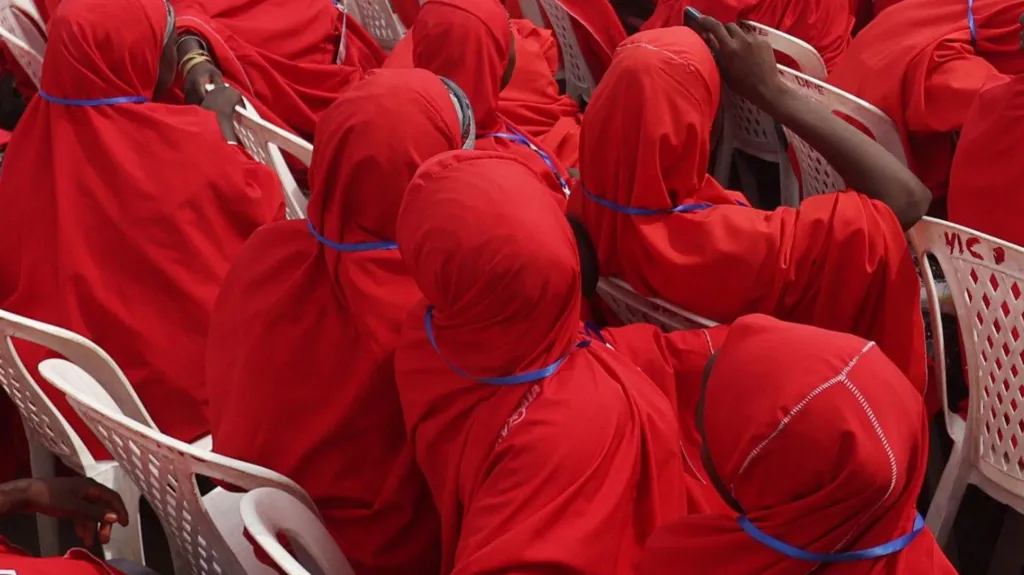The planned mass wedding of about 100 orphans has sparked widespread outrage across Nigeria.
The orphans, some of whom are feared to be underage girls, are set to be married off on 24 May in the north-western state of Niger.
They have all lost parents to attacks by armed bandits, who regularly target civilians across the state.
Nigeria’s Women’s Affairs Minister Uju Kennedy-Ohanenye said she has filed a court order to stop the ceremony.
According to reports, the mass wedding was supported by the Speaker of the Niger State Assembly, Abdulmalik Sarkin-Daji, who said local religious leaders had approached him for help funding it.
The Imams Forum of Niger have said that the marriage ceremony should go ahead, insisting that the girls are not below the 18 – the legal age of marriage.
However, critics have expressed concern that some girls may be younger than 18, or being forced to comply for financial gain.
Minister Kennedy-Ohanenye said the girls “deserve better” and that her department was looking into who the 100 girls are, their ages and whether they consented to the marriage.
Her department will offer the girls education and training, she said, adding that if the Niger State speaker attempts to block these efforts “there will be a serious legal battle between him and the Ministry of Women Affairs”.
On Friday, senior presidential aide Abiodun Essiet reiterated Ms Kennedy-Ohanenye’s plan of action.
Ms Essiet added: “My appeal to all stakeholders is to stop embarking on policies and programs that exploit economically handicapped vulnerable people, increase and recycle poverty, and deepen ignorance.”
Human rights activists in Nigeria have launched a petition to stop the plan. As of Friday evening, it has 10,500 signatures.
According to international campaign group Girls Not Brides, 30% of girls and 1.6% of boys in Nigeria are married before the age of 18. Some 12% of girls are married before their 15th birthday.
Child marriages are most common in the northern part of the country, among poor, rural households. It is seen as a way to reduce their families’ financial burdens or to improve political and social alliances.
Northern Nigeria is mostly Muslim and religious and cultural norms, such as polygamy, favour the practice.
